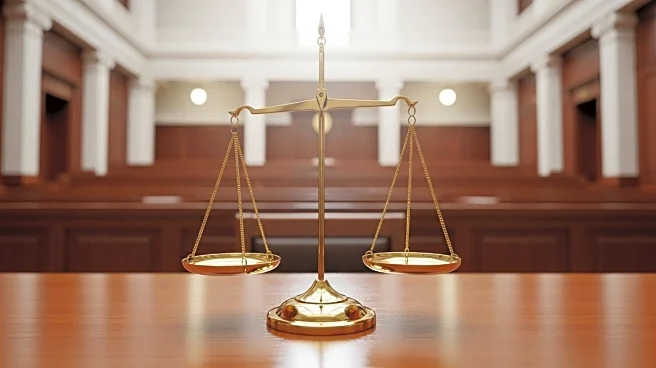What's Happening?
The Supreme Court is set to deliberate on a significant case concerning the Voting Rights Act, focusing on Louisiana's congressional redistricting. The case revolves around whether the creation of majority-Black
districts, as mandated by the Voting Rights Act, violates the 14th and 15th amendments of the Constitution. These amendments were established post-Civil War to ensure equal rights for former slaves, including voting rights. Louisiana was required to redraw its congressional map to include two majority-Black districts, but the state has since aligned with a group of voters challenging this requirement on constitutional grounds. The Trump administration supports Louisiana's new stance. Civil rights groups defending the map argue that race must be considered to comply with the Voting Rights Act. The Supreme Court's decision could have far-reaching implications for minority representation in legislative bodies.
Why It's Important?
This case holds significant implications for the future of minority representation in U.S. politics. A ruling in favor of Louisiana could diminish the necessity for states to create districts with substantial minority populations, potentially reducing the number of minority lawmakers. This shift could impact the political landscape, as Black voters predominantly support Democratic candidates. The decision could also influence how states approach redistricting ahead of the 2026 midterm elections, affecting the balance of power in Congress and state legislatures. The case underscores ongoing debates about race and representation in American democracy, with potential consequences for civil rights protections and electoral fairness.
What's Next?
The Supreme Court's ruling could prompt states to redraw their legislative maps, potentially altering the composition of minority representation in Congress and state legislatures. A decision favoring Louisiana might lead to fewer districts designed to ensure minority representation, impacting the political influence of minority communities. The outcome could also set a precedent for future redistricting cases, shaping how race is considered in electoral processes. Stakeholders, including civil rights groups and political parties, are likely to respond to the ruling, influencing public discourse and policy decisions related to voting rights and electoral fairness.
Beyond the Headlines
The case highlights broader ethical and legal questions about race and representation in the U.S. electoral system. It raises concerns about the balance between constitutional principles and civil rights protections, particularly in the context of historical racial discrimination. The decision could trigger long-term shifts in how race is factored into political processes, influencing debates on equality and justice in American society. The case also reflects ongoing tensions between conservative and liberal interpretations of the Constitution, with potential implications for future judicial decisions on civil rights and electoral policies.









